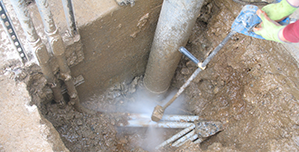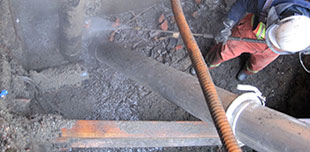With the right maintenance, aging septic systems may be extended to work for the next 5 to 10 years. But after maximizing the utility of a septic system, after 30 or so years, you would really have to replace the entire septic system. Here are some guides in replacement system options to help you out.
Kinds
One of the first things you need to consider when replacing your septic system is the kind of tank you will use. For this, you have three replacement system options: a steel septic tank, concrete or plastic.
If you are thinking long term, steel septic tanks may not be a wise option. This replacement system option may accumulate rust over time, which shortens the life of the septic tank. Until when before this starts to accumulate rust depends on the kind of steel used and on how the installation was done. It also depends on other factors like the area where it will be installed.
For septic experts, using concrete and plastic septic tanks would be a wiser decision. These replacement system options can be used for up to 40 years, if well taken care of.
Know the demands of the replacement system
Different replacement system option has different demands. It is important that you understand the demands of the system that you have chosen and see how difficult the entire installation could be. See if your area can cope with what the option asked for. Consulting the septic tank dealer would also be helpful in weighing the different replacement system options. Their assessment will guide you in choosing which one is a better.
There are things you can do to extend that aging septic system’s lifespan to up to 10 to 15 more years. But after exhausting all the dos to maximize the aging septic system’s use, you would really have to replace the system at some point. Make sure you look at all the factors to help you select the best option.








